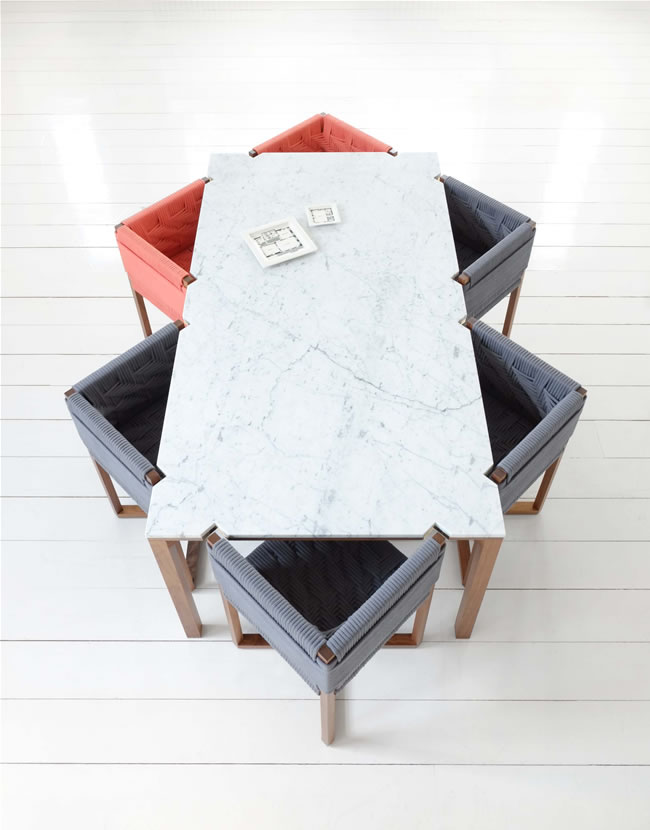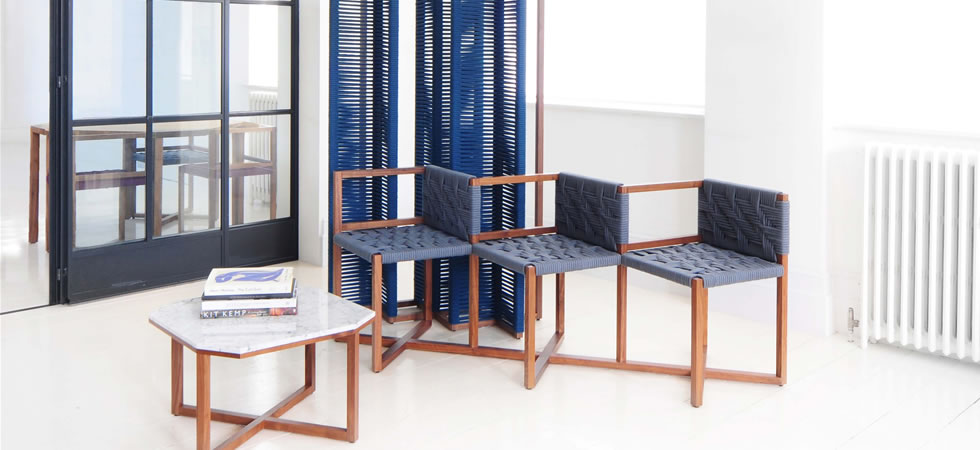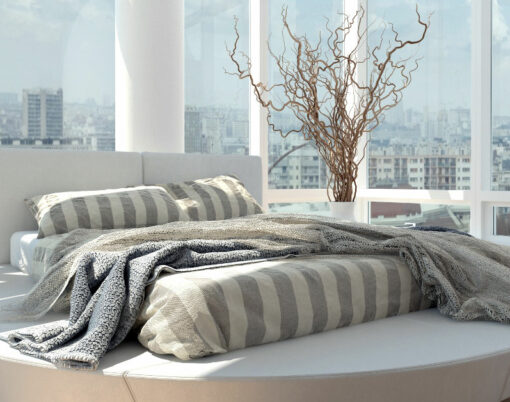UK furniture brand Efasma have unveiled their first collection at this year’s 100% Design in London.
Designed by London based architects Bureau de Change, the range establishes the brand’s ethos in creating innovative design products, which are shaped by a desire for an ecological approach and the use of natural materials, traditional techniques and quality craftsmanship.
The essence of the collection is drawn from the brand’s origins in Greece, inspired by a wish to utilize talented local craftsmen and draw their skills out from the shadows of industrial manufacture. The country’s basket makers and weavers – the skills of whom will be used in the manufacture of the furniture – inspired tactile and three dimensional handwoven surfaces.
Bureau de Change co-founder Katerina Dionysopoulou said: “Sourcing materials and production in Greece gives Efasma and the consumer the chance to benefit from the craftsmanship of the country’s highly skilled makers, and also brings business back to the company’s community.”

Single lengths of 100% cotton rope bind chair frames together, giving them rigidity, a concept which exemplifies the use of traditional techniques as a platform for innovation. Handcraftsmanship is enhanced by nanotechnology, which repels dirt from the cotton textile, increasing its longevity. The collection is made up of handwoven walnut framed seating, substantial marble and timber dining tables, a coffee table and room divider. The depth and richness of the woven surfaces are amplified by clean, graphic forms across the range and their combination with highlights of glossy marble and brass.
The range was inspired by Bureau de Change’s interest in interrogating materials and manufacture processes, in order to blend functionality with aesthetic drama and attention to detail – an approach they typically use in their architectural commissions. Woven surfaces are echoed in the geometry of the solid wood dining table, which plays with the direction and natural grain of solid oak and walnut. The same technique is used in the coffee table, in which puzzle like marble panels are rotated and pieced together to emphasize the veins running through the material. The dining tables have been shaped by a slotting system, in which Efasma’s dining chairs appear pushed into the edge of the table, leaving behind a footprint of satisfying brass clad notches.
Commenting on the pieces, Bureau de Change co-founder Billy Mavropoulos added: “We wanted to create products in which design content and innovation emerge from traditional techniques and craftsmanship. Distilling the structures down to their simplest forms not only creates a strong graphic language within the range, but also embosses detailing, the textural qualities of the woven surfaces and the patina of natural materials.”






















